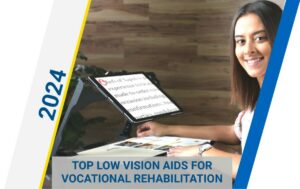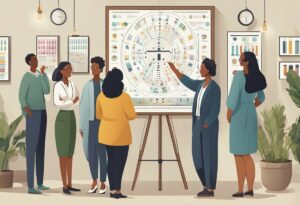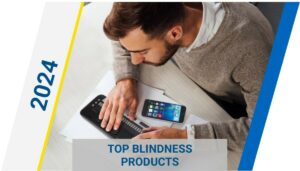There’s No Place Like A Smart Home

 In the movie, The Wizard Oz, Dorothy recites the famous quote, “there’s no place like home.” I loved the movie, and I agree with her sentiment about being “home.” Home tends to be the place where we are most comfortable and a place we often long for after being away on a vacation, business trip, or even a long day at work. However, for many people, especially older adults, daily living tasks can become compromised as the result of living alone or confronting health issues that coincide with aging. As a result, an older adult can grow to feel less comfortable in their home as they age, and possibly, not as connected to the world as they once were.
In the movie, The Wizard Oz, Dorothy recites the famous quote, “there’s no place like home.” I loved the movie, and I agree with her sentiment about being “home.” Home tends to be the place where we are most comfortable and a place we often long for after being away on a vacation, business trip, or even a long day at work. However, for many people, especially older adults, daily living tasks can become compromised as the result of living alone or confronting health issues that coincide with aging. As a result, an older adult can grow to feel less comfortable in their home as they age, and possibly, not as connected to the world as they once were.
In my work as a Smart Home trainer and consultant here at NELVB, I have had the pleasure of working with many clients for whom Smart Home technology has greatly improved their sense of well-being, their connectedness with the world, and their level of independence.
To illustrate how Smart Homes can improve one’s quality of life, I wanted to share some of the experiences my clients have had with Smart Home technology. As you read these anecdotes, maybe you’ll see some parallels in your life or that of a loved one.
Appointment Calendar
Have you or a loved one missed or forgotten about an appointment on your calendar? If you’ve experienced this, you understand the embarrassment of receiving a phone call from a doctor’s office that you missed an appointment or the feeling of letting down a friend because you failed to show up for a lunch date.
Struggling with an appointment calendar is quite common with seniors. In some cases, my older clients don’t write as legibly as they once did, so they are unable to read an item that was previously written down on their calendar. Other times, they’ll rely too heavily on their memory to remember an appointment, and an appointment will fall through the cracks. As a last resort, my clients will ask a son or daughter to help them maintain their calendar. In each of the examples above, the senior is often left feeling less capable and less confident in their ability to manage life.
The solution to these calendar issues? Smart Home technology. Let me illustrate for you with a real experience I had with a client. My client, Jean (name changed to protect privacy), had missed several important doctor’s appointments because she would write things down and lose the paper, or not be able to read her handwriting. In fact, when I showed up for our first appointment, she was surprised to see me at her front door when I first showed up and later admitted she forgot about the appointment. The SOLUTION – in one session I set up an electronic calendar for her on Google and linked it to Alexa, Google’s Virtual Assistant. Now Jean simply uses her own voice to set up her calendar appointments in Alexa. A reminder is included for each event on her calendar set so she’s alerted prior to all of her appointments. No pens, no pencils, no paper, no calendars needed – now Jean just asks Alexa what her appointments are for a particular day or a particular week, and Alexa tells her. The take away – Jean is no longer being managed by life’s circumstances. Now, she’s in control – and the confident smile on her face when I left her home that day is proof.
Communication
I can’t live without my cell phone. It’s indispensable to me. For my 80 year-old mother, her cell phone is a riddle she has never quite been able to solve. She would love to be able to text her children or grandchildren on a whim, but struggles mightily to do so. Like my mother, my client Sue (name changed) desperately wanted to easily communicate with her children and grandchildren. She loved the idea of being able to send text messages to her family, or email her friends, but her vision made it difficult for her see and touch the correct touch tone numbers on her phone. Sending a text message? On a cell phone? Correctly? Not a chance… In fact, her daughter gave her a cell phone so she could send texts, but the learning curve was just too steep for her. The SOLUTION – Smart Home Technology.
Using a standard Alexa set up, I entered all of Sue’s contacts in the Alexa app. With the contacts loaded, I trained Sue to send and receive text messages and emails from her friends and family using simple voice commands. For example, to call her son John, Sue just needs to say, “Alexa, call John” and the call is made. No button pushing. No searching for numbers in a notebook or rolodex. And when her granddaughter sends her an email or text message to wish her happy birthday, Sue simply asks Alexa to read her texts and emails and, voila – she hears and experiences one of life’s simple pleasures – a simple birthday wish from a loved one. The take away – communication barriers are lifted through Smart Home Technology. Sue can now more freely engage with family and friends which gives her a greater sense of connectedness and belongingness with the world around her.
Knowledge
Knowledge is power the old adage goes. For seniors and people with low vision, seeking a variety of sources of information can be burdensome. My experience with older folks and people with low vision who thirst for knowledge is that data, news, and information is only attainable for those tenacious enough to find it.
As a trainer for NELV, I have had the privilege of working clients from a diverse set a background, including scientists, lawyers, professors, musicians, doctors, and military personnel. Each client I have has a unique set of interests and a unique desire for knowledge. But, where does one go who is thirsty for news and knowledge when the internet isn’t accessible because of vision loss? Are newspapers and magazines that can’t be read the answer? Often times, no. The SOLUTION – Smart Home Technology.
My client, Jim (name changed) is a news and history junkie but accessing text from newspapers and books is not very easy for him. With a Basic Smart Home set up, Jim listens to news from a variety news sources including CNN, FOX, and MSNBC. He was especially excited to hear he could easily access BBC News through his Alexa device. Since Jim seeks knowledge on a vast array of subjects, including the news, economics, politics, and the history of military conflict, I showed Jim how to scan the internet using Alexa to find podcasts that interested him.
One podcast we stumbled onto together was the “Jocko Podcast” created by Jocko Willink, a Navy SEAL who led Task Unit Bruiser, the most highly decorated Special Operation Unit during the Iraq War. Jim and I listened to the first ten minutes of the podcast, and not only was Jim hooked, but I was, too! As the result of one two-hour training session on Smart Home Technology, Jim’s “world” has now vastly expanded in terms of his ability to access information. Jim is now truly PLUGGED into the sources and information that make him feel engaged with the world and his surroundings.
I hope you get the sense from this post how exciting it is for me to help my clients feel more engaged and more secure in their surroundings. And, since Smart Home technology is evolving so rapidly, there are more and more tools available to me and our team to help our clients improve their sense of well-being and live more successfully. The success stories I have written about here are what truly make my job meaningful and satisfying.
About Greg Coppolino
Greg is an Assistive Technology Trainer & Consultant who travels to your home or school to install your assistive technology and provide training on your product. Greg joined New England Low Vision and Blindness in 2019. If anyone is in need of training for their student, senior, co-worker, or veteran, please contact New England Low Vision and Blindness to schedule a personal consultation with Greg or any of our Trainers. Call our toll free number 888-211-6933 or email us at info@nelowvision.com.
About New England Low Vision and Blindness
New England Low Vision and Blindness is a full-service assistive technology rehabilitation training provider. We offer nearly 100% of all major low vision and blindness products and have two (2) assistive technology showroom centers; one in Worcester, MA, and a second in Shelton, CT.
At each of our technology showrooms, we provide ‘patient-choice’ showcasing numerous technology options from the world’s most respected suppliers, all in line with one’s individualized budgetary limits and personal, educational or professional goals. We also provide custom training solutions, Smart Home technology and installations, and troubleshooting support.
Widely known, tested, and trusted throughout New England, our team brings to each client 75+ years of low vision experience. Our talent, technology, and training offerings are unmatched and highly respected. We are an extremely unique and extraordinary resource for anyone suffering from vision loss in New England. We are here to help. Call our toll free number 888-211-6933 or email us at info@nelowvision.com.
Other helpful links:



